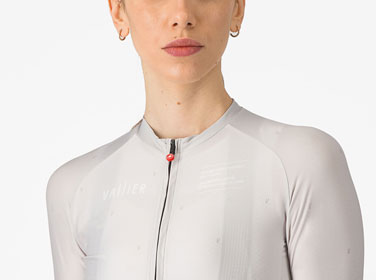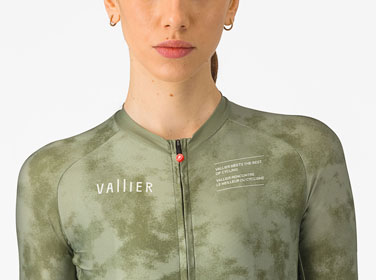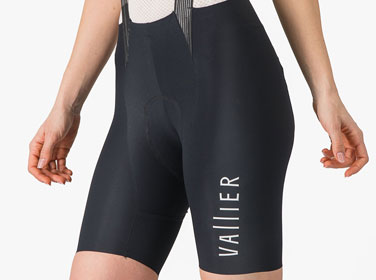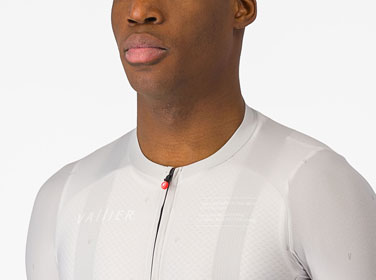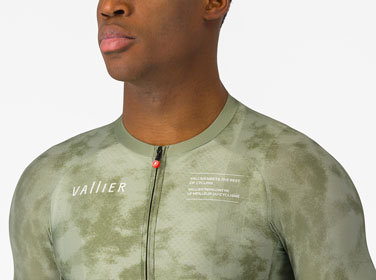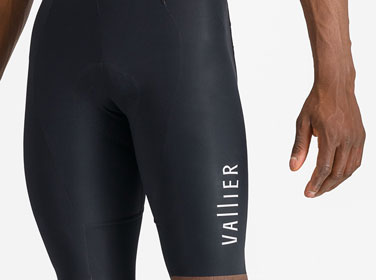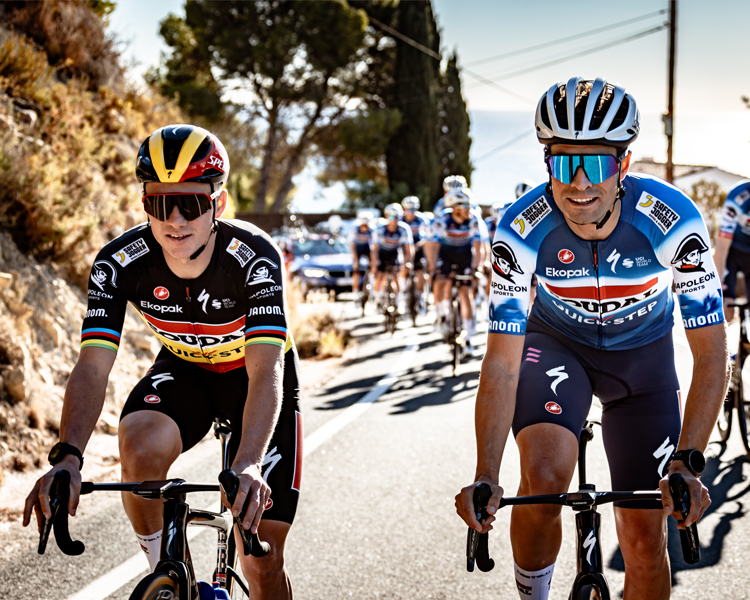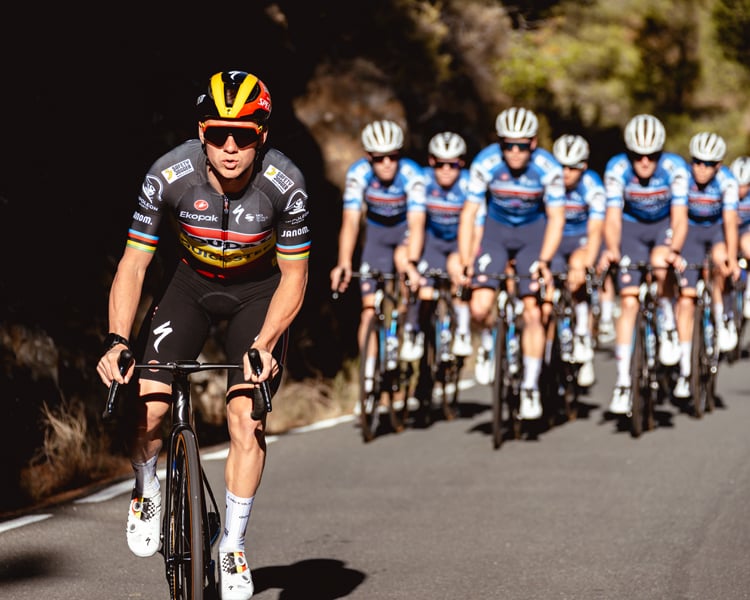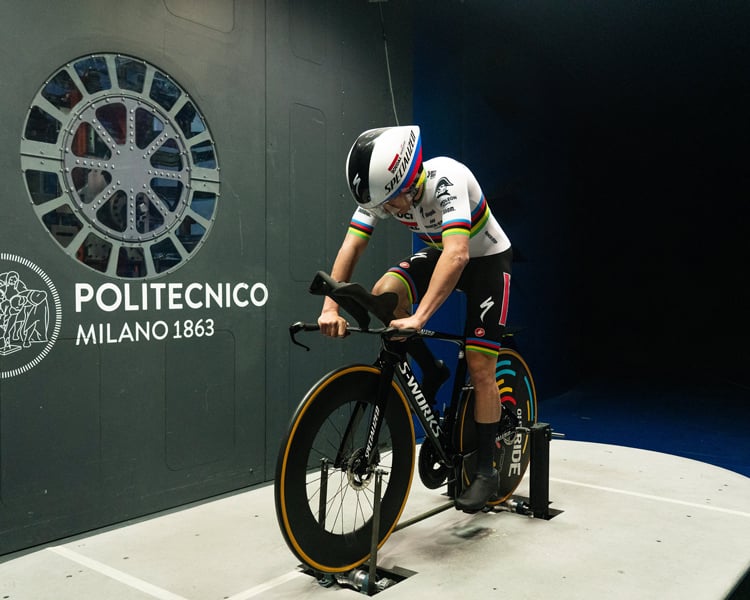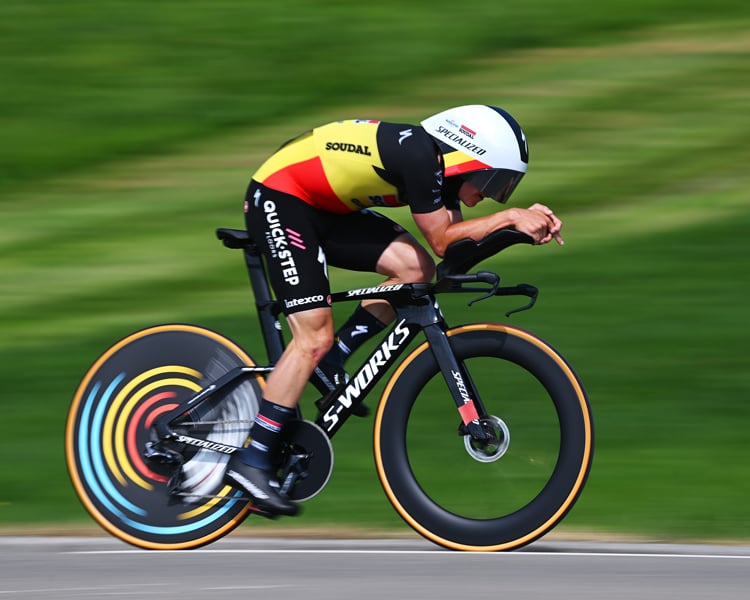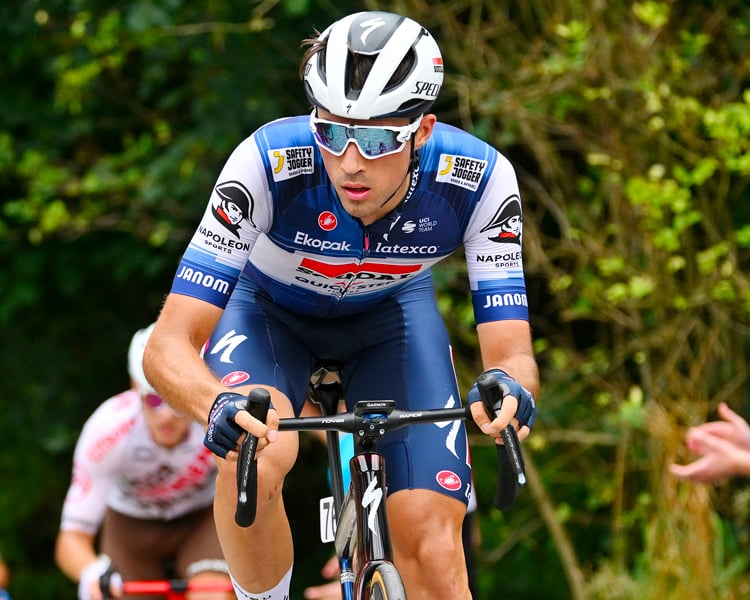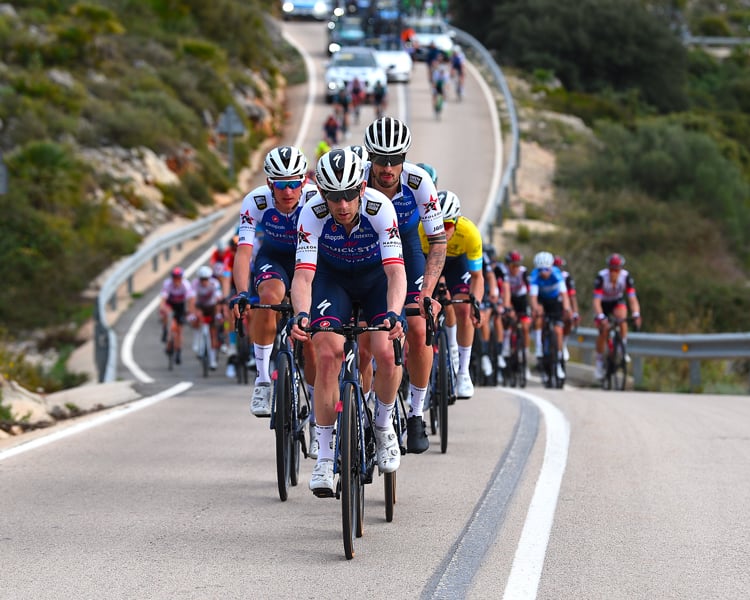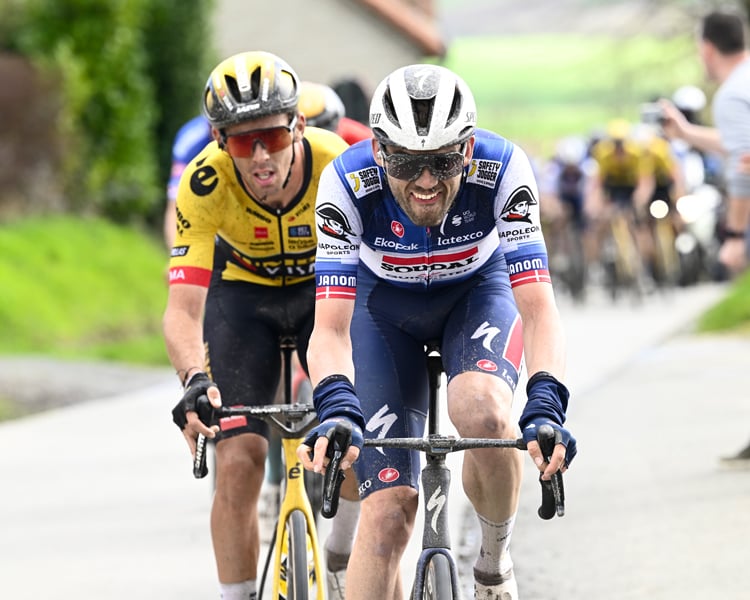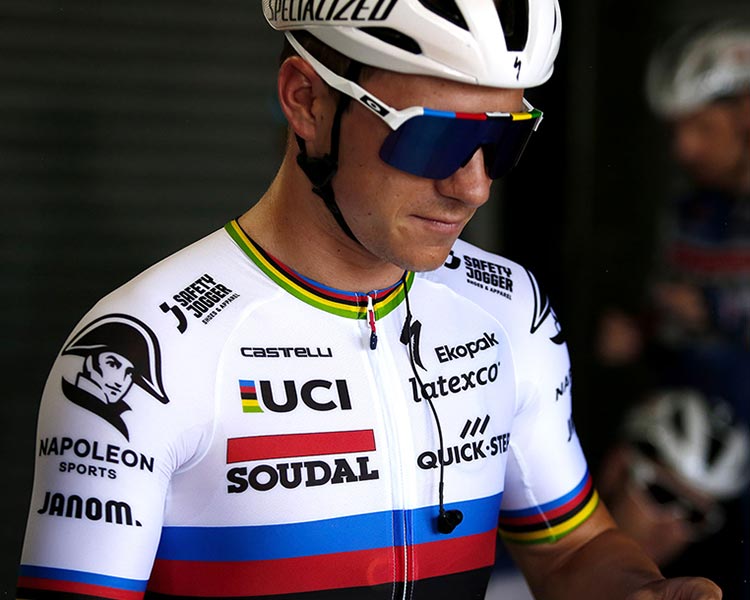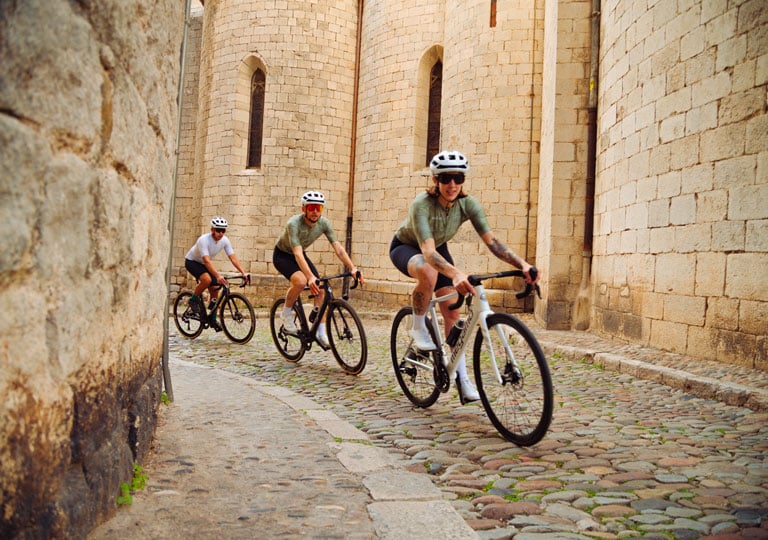
VALLIER x CASTELLI
URBAN NATURE
Vallier was launched in 2019 in Montreal. The brand was born from the vision of designing clothes for everyday city life, elegantly incorporating all the benefits of cutting-edge outdoor technologies.
From collection to collection, they’ve asserted and reaffirmed their personality, embodied in a range of timeless, durable essentials. Their approach is globally responsible—based on sustainable material choices and manufacturing processes, and the production of a third of their collection in Canada.
In 2024, the brand teamed up with Castelli to offer a unique perspective on what high-performance cycling apparel can be. This is the story of products that appeal to the urban cycling community and beyond, who live and breathe cycling as an integral part of their lifestyle.
From collection to collection, they’ve asserted and reaffirmed their personality, embodied in a range of timeless, durable essentials. Their approach is globally responsible—based on sustainable material choices and manufacturing processes, and the production of a third of their collection in Canada.
In 2024, the brand teamed up with Castelli to offer a unique perspective on what high-performance cycling apparel can be. This is the story of products that appeal to the urban cycling community and beyond, who live and breathe cycling as an integral part of their lifestyle.
RIDING IN MONTREAL
Not far from Vallier's Montreal offices is the Camilien-Houde hill. You may not be able to see it from your window, but you can clearly see the Mount Royal it climbs.
At around 120 m of ascent over a kilometre and a half—with an average incline of 7% and a peak of 11—it's a modest playground. But hills are what they are, and Camilien-Houde is the one for Montreal cyclists, who climb it as much as they can, during the seven months or so when the weather permits.
It's also the climb that's at the heart of the “Grand Prix Cycliste de Montréal”. Every year, just before autumn, the pros cross the Atlantic to race in the heart of the city, completing the climb 18 times over a 12 km loop. Adam Yates won last year—in 2022, it was none other than Pogi.
It puts road cycling in Montreal front and centre, giving the sport a distinctive urban flavour. The foot of the mountain is located at the corner of the legendary avenues of Parc and Mont-Royal, and enthusiasts converge on the Plateau in the early morning to ride together, then retreat to their neighbourhood cafés before work.
Many of these cyclists are Vallier customers—and some are team members. The idea of offering cycling ensembles that perform at the highest level, while retaining their distinctive clean design, came quite naturally. As did the brand with which to produce them.
At around 120 m of ascent over a kilometre and a half—with an average incline of 7% and a peak of 11—it's a modest playground. But hills are what they are, and Camilien-Houde is the one for Montreal cyclists, who climb it as much as they can, during the seven months or so when the weather permits.
It's also the climb that's at the heart of the “Grand Prix Cycliste de Montréal”. Every year, just before autumn, the pros cross the Atlantic to race in the heart of the city, completing the climb 18 times over a 12 km loop. Adam Yates won last year—in 2022, it was none other than Pogi.
It puts road cycling in Montreal front and centre, giving the sport a distinctive urban flavour. The foot of the mountain is located at the corner of the legendary avenues of Parc and Mont-Royal, and enthusiasts converge on the Plateau in the early morning to ride together, then retreat to their neighbourhood cafés before work.
Many of these cyclists are Vallier customers—and some are team members. The idea of offering cycling ensembles that perform at the highest level, while retaining their distinctive clean design, came quite naturally. As did the brand with which to produce them.
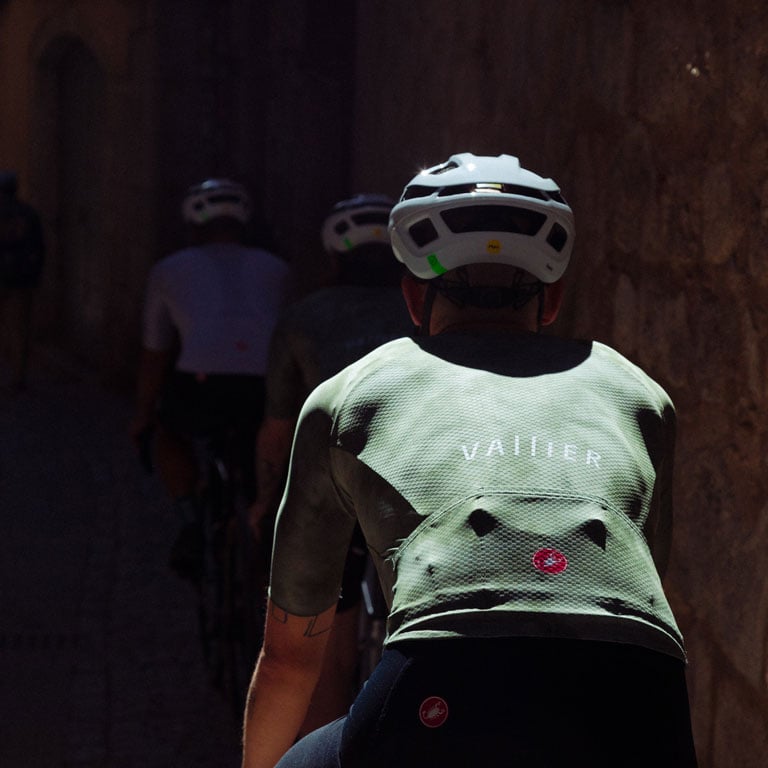
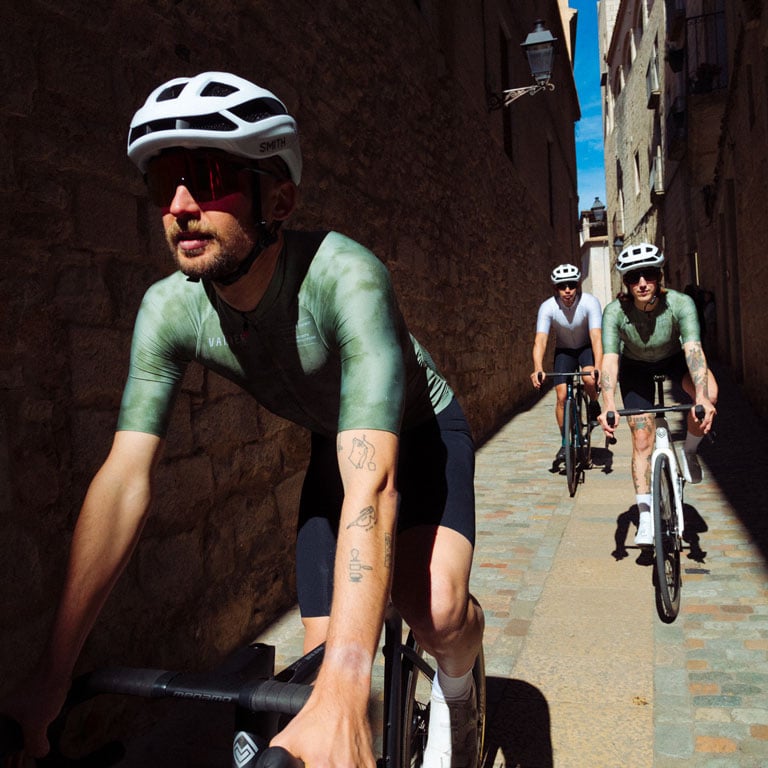
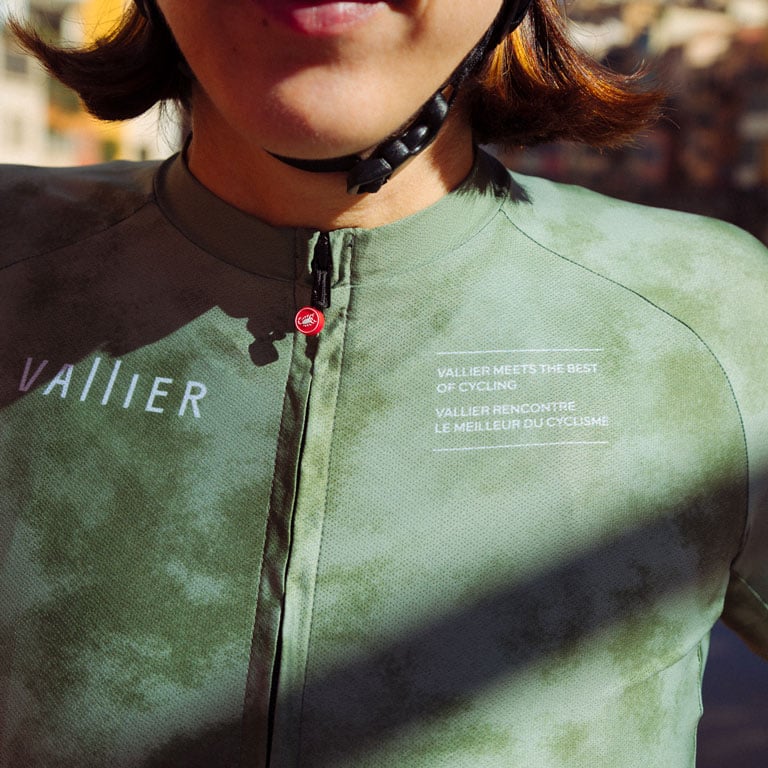
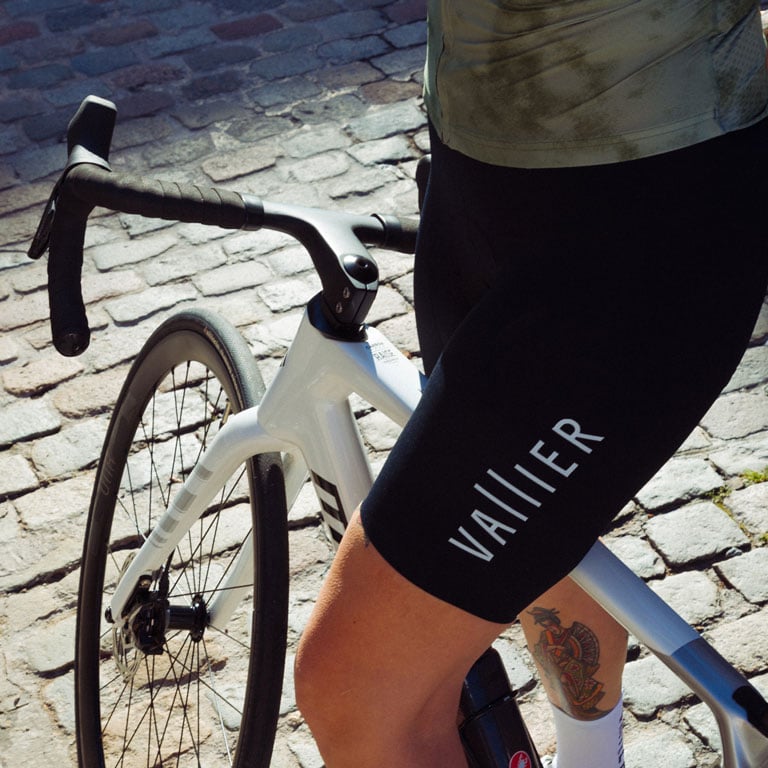
KEEPING IT THE NEIGHBOURHOOD
Because not far from Vallier's Montreal offices were Castelli's, before the brand's Quebec pied-à-terre moved to the bustling Eastern Townships. According to designer Valérie Drolet, if proximity helps, it's far from the only reason Vallier decided to knock on the door of its former neighbour. For the Montrealer, Castelli is a well-established brand that inspires confidence, and whose classic image matches Vallier's perfectly. There's something timeless about them both, unaffected by fads.
Vallier brought its city-inspired concepts to the table, with all their refinement and versatility. The brand is urban by nature, and sees cycling as an extension of its lifestyle. Castelli warmly welcomed the proposal, happy to explore a refreshing direction that emerges from a vibrant and ever-evolving cycling culture. All this, of course, without sacrificing an ounce of their legendary quality, nor altering the elegance of their Italian tradition.
Vallier approached the task by wanting to create something that was 100% in line with the direction of their collection—but for cycling. On the frame supplied by Castelli, the brand drew its very clear, very precise lines. On the jerseys, the rich grey colour has a concrete depth and is reminiscent of the city, while the wispy green invites movement and evokes nature. It was Vallier's intention, with these choices, to express the link between the winding streets of the metropolis and the call of the open road.
“In terms of design, we were looking for something sleek, elegant and high-performing—in both cut and finish.” According to Valérie Drolet, it's easy to work from an established image like Castelli's: you can approach it like a canvas. This image is so well defined that you can afford to make a clean sweep, aesthetically, and then “dress it up in Vallier”, as she puts it.
She adds: “We were given this freedom: the choice of colours, patterns, everything—and we invited Castelli into town, so to speak. I think we succeeded in bringing a new look to the product, without altering it, but enough to surprise."
Vallier brought its city-inspired concepts to the table, with all their refinement and versatility. The brand is urban by nature, and sees cycling as an extension of its lifestyle. Castelli warmly welcomed the proposal, happy to explore a refreshing direction that emerges from a vibrant and ever-evolving cycling culture. All this, of course, without sacrificing an ounce of their legendary quality, nor altering the elegance of their Italian tradition.
Vallier approached the task by wanting to create something that was 100% in line with the direction of their collection—but for cycling. On the frame supplied by Castelli, the brand drew its very clear, very precise lines. On the jerseys, the rich grey colour has a concrete depth and is reminiscent of the city, while the wispy green invites movement and evokes nature. It was Vallier's intention, with these choices, to express the link between the winding streets of the metropolis and the call of the open road.
“In terms of design, we were looking for something sleek, elegant and high-performing—in both cut and finish.” According to Valérie Drolet, it's easy to work from an established image like Castelli's: you can approach it like a canvas. This image is so well defined that you can afford to make a clean sweep, aesthetically, and then “dress it up in Vallier”, as she puts it.
She adds: “We were given this freedom: the choice of colours, patterns, everything—and we invited Castelli into town, so to speak. I think we succeeded in bringing a new look to the product, without altering it, but enough to surprise."
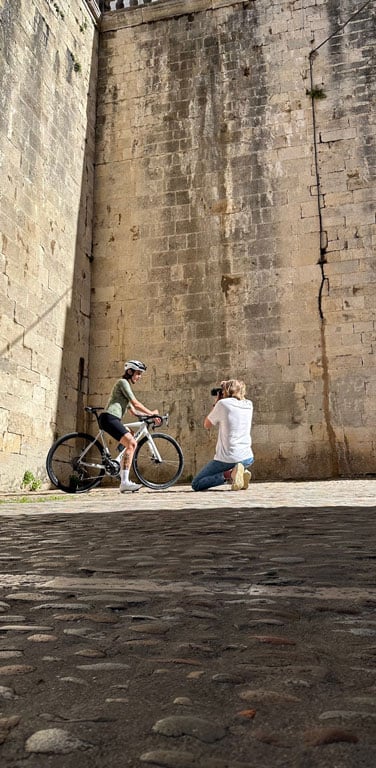
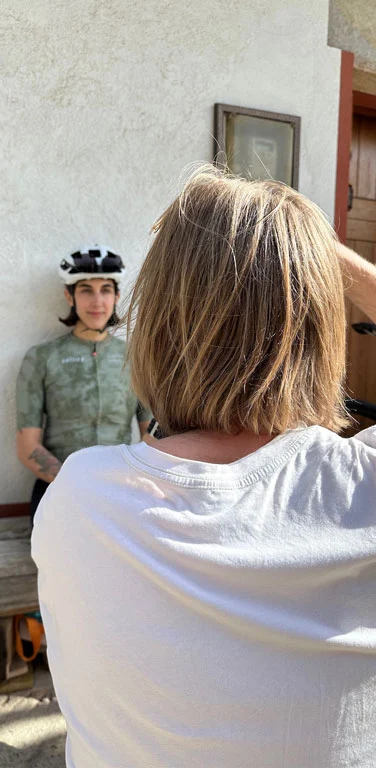
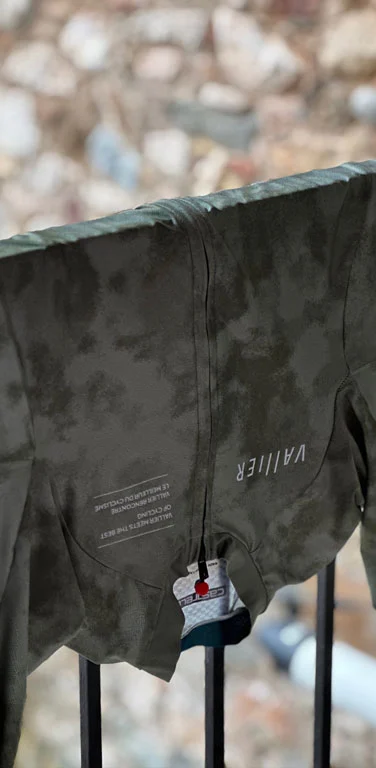
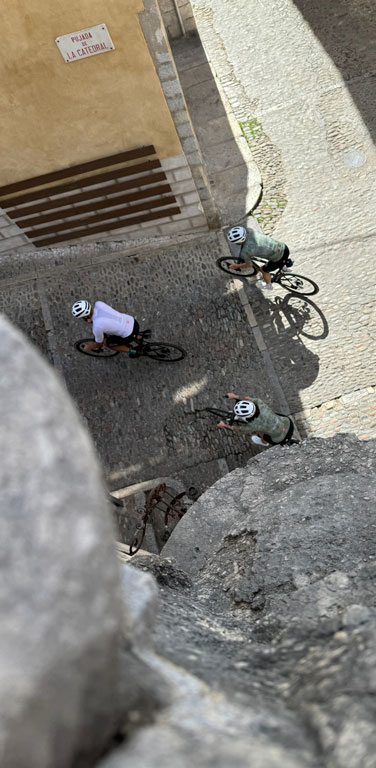
CUTTING-EDGE TECHNOLOGY AND PERFORMANCE
Only the best Castelli pieces were selected. It's fair to say that the roles of both parties were very clear—this collaboration is a story about trust, and an opportunity to capitalize on each other's strengths. Whether you're talking to Vallier or Castelli, you'll hear the same thing: both brands feel they're pulling each other up by the bootstraps.
Interestingly, the printing techniques differ from shorts to jerseys. According to Castelli's Pierre Perron, the idea is to use the right technology in the right place. While the jersey allows you to go further visually, and push a concept to its full potential without sacrificing performance, the technique used for the shorts optimizes comfort where it really counts.
These bib shorts are new to the Castelli range this year, and are probably one of the best available on the market today. Thanks to a printing technique known as DTF (Direct To Film, a technique that enables images of supernatural definition to be printed on fabrics of the highest quality), Castelli is able to work with a very high-end fabric it calls Forza 2. It's highly compressible, and the muscle support and comfort it offers are unrivalled. It's made with a thread that's dyed before being processed, which greatly enhances the product's durability, while guaranteeing consistent performance over time.
Pierre Perron's enthusiasm for the result is palpable: “The cut of the letters is simply perfect. There's a real trend we're seeing right now among teams, who will ask us for a jersey in the colours of their various sponsors, but choose shorts like this, because it's the pinnacle of comfort. When you spend up to five hours racing on your bike, it's crucial.”
Interestingly, the printing techniques differ from shorts to jerseys. According to Castelli's Pierre Perron, the idea is to use the right technology in the right place. While the jersey allows you to go further visually, and push a concept to its full potential without sacrificing performance, the technique used for the shorts optimizes comfort where it really counts.
These bib shorts are new to the Castelli range this year, and are probably one of the best available on the market today. Thanks to a printing technique known as DTF (Direct To Film, a technique that enables images of supernatural definition to be printed on fabrics of the highest quality), Castelli is able to work with a very high-end fabric it calls Forza 2. It's highly compressible, and the muscle support and comfort it offers are unrivalled. It's made with a thread that's dyed before being processed, which greatly enhances the product's durability, while guaranteeing consistent performance over time.
Pierre Perron's enthusiasm for the result is palpable: “The cut of the letters is simply perfect. There's a real trend we're seeing right now among teams, who will ask us for a jersey in the colours of their various sponsors, but choose shorts like this, because it's the pinnacle of comfort. When you spend up to five hours racing on your bike, it's crucial.”
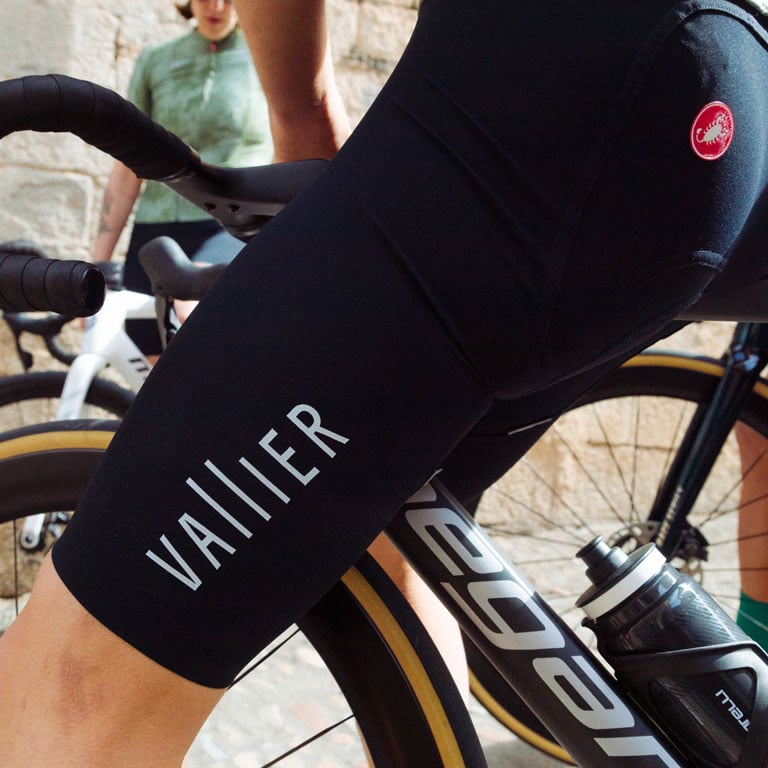
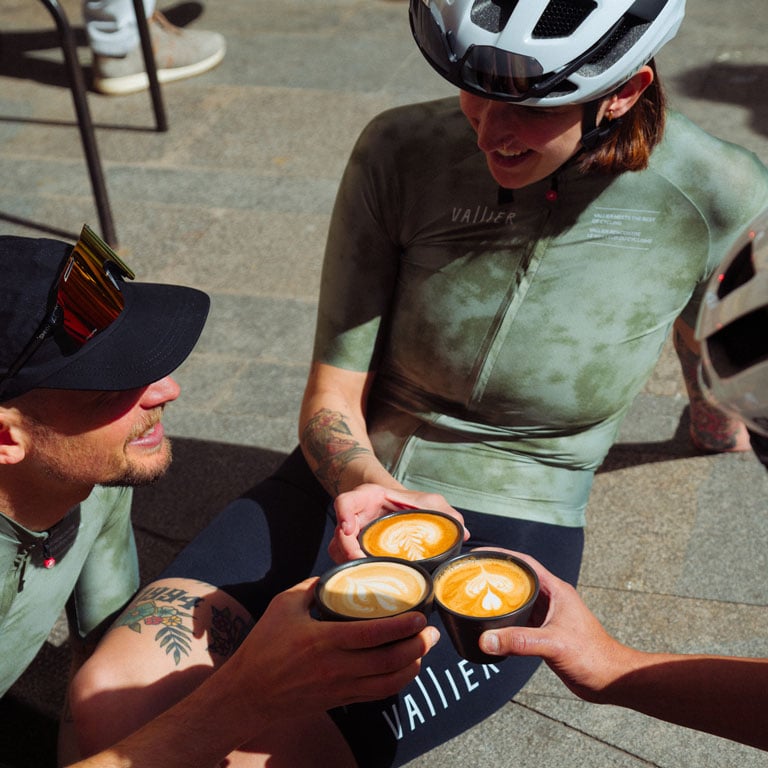
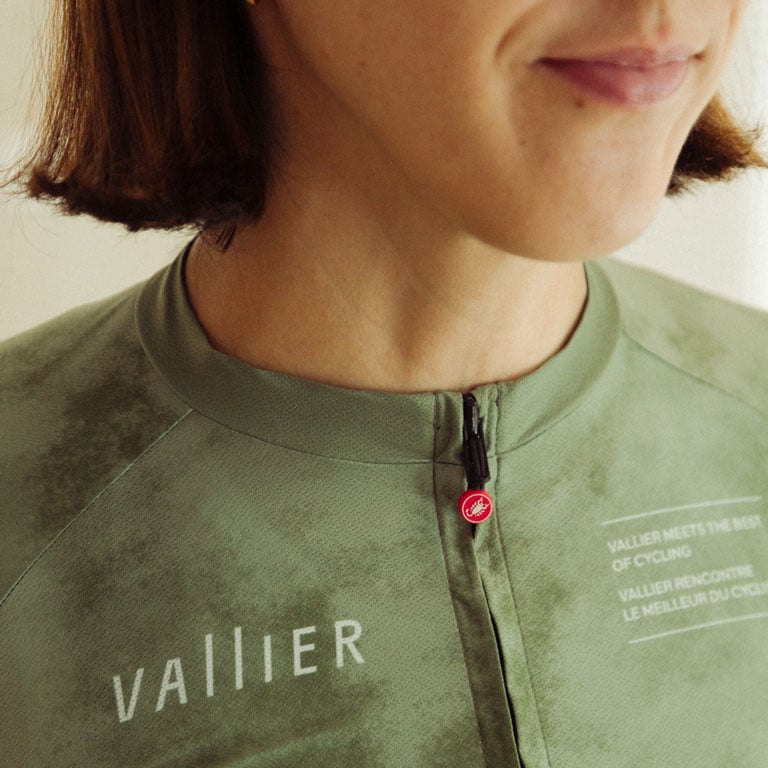
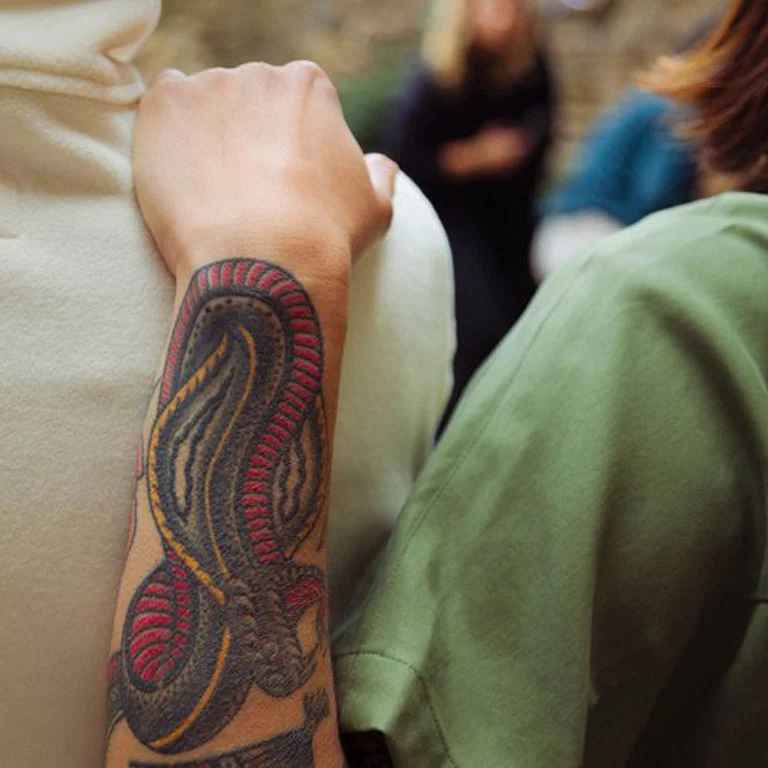
CAPTURING THE ESSENCE OF THE COLLABORATION
It was a first for both brands to organize a photoshoot involving actors in three different countries: Canada, Italy and Spain. The idea of shooting in Girona was an appealing one. The city has become a hub for international cycling since the 1990s, attracting an ever-increasing number of professionals who train there, and enthusiasts who take a break from the winter to rack up the kilometres in preparation for spring.
Castelli correspondent Béatrice Perron was on site to help coordinate events around the best venue for the occasion: Castelli's only concept boutique in the world, conveniently located in the heart of the Catalan capital. “It was really cool to work with Sergi, a local photographer. He knew everyone and every nook and cranny of the city, where to go and what time to get the best light... He was an incredible asset. He also offered us a really privileged connection with the local cycling community.”
Castelli correspondent Béatrice Perron was on site to help coordinate events around the best venue for the occasion: Castelli's only concept boutique in the world, conveniently located in the heart of the Catalan capital. “It was really cool to work with Sergi, a local photographer. He knew everyone and every nook and cranny of the city, where to go and what time to get the best light... He was an incredible asset. He also offered us a really privileged connection with the local cycling community.”
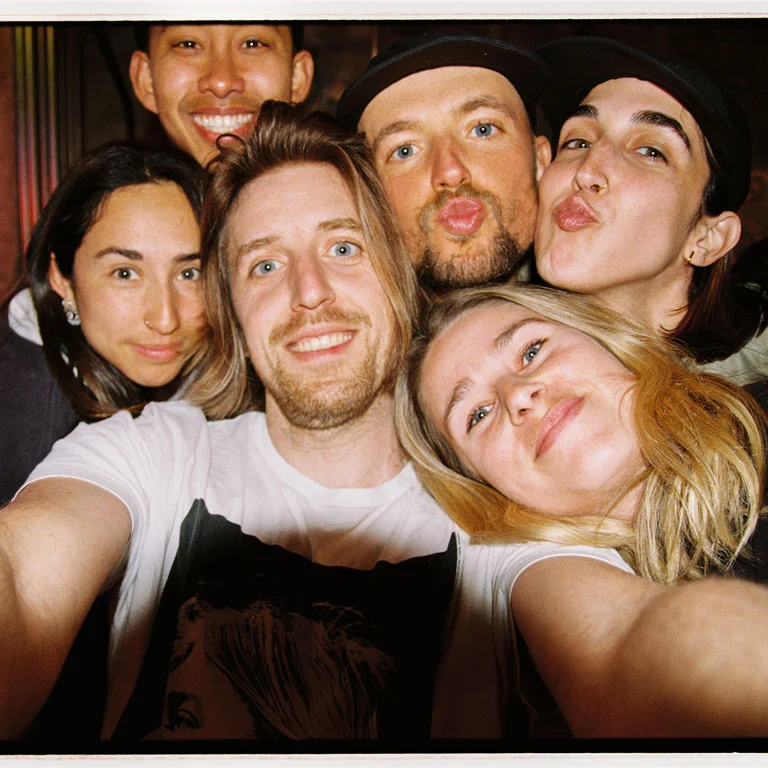
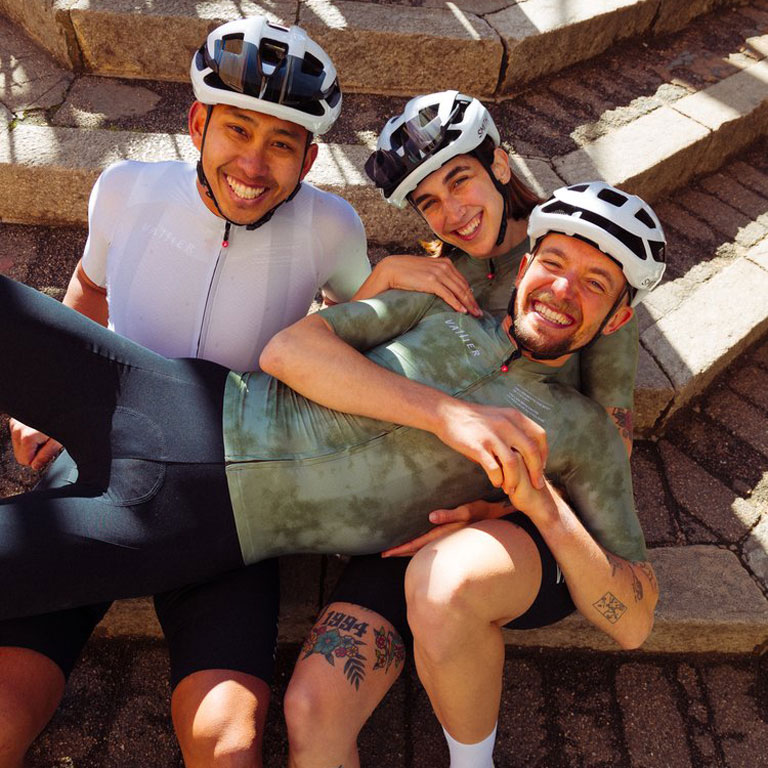
Community is a recurring theme when discussing the collaboration with those involved. It's central to Vallier's vision, and it's a direction that Castelli wants to embody. In the world of amateur cycling, there has always been a tendency to want to imitate the professionals—to ride the same machines, and wear the same clothes. In recent years, however, there's been a quiet shift away from these old habits. We've noticed that cycling enthusiasts are looking for clothing that performs better than ever, but with a style that's closer to their daily lives, their environment and their habits.
Cycling seems to be, more than ever perhaps, a social activity and the meet-up places in town are many and varied. People want to dress to ride, with clothes that will fit in at the café where they socialize, and on the terrace in the late afternoon. Castelli wants to appeal to this emerging community and make its technical heritage available to them. And combining performance and understated elegance is, in a way, Vallier's signature.
For William Wachter, artistic director of the Montreal-based brand, that's what the photos are all about: the friendly, communal aspect. “Sharing the bike”, as he cleverly puts it. “The session was imagined as a cycling trip between enthusiasts: we meet up at someone's house, gear up, go riding, and stop off at the café. All in Girona, in the best clothes and conditions imaginable.”
Cycling seems to be, more than ever perhaps, a social activity and the meet-up places in town are many and varied. People want to dress to ride, with clothes that will fit in at the café where they socialize, and on the terrace in the late afternoon. Castelli wants to appeal to this emerging community and make its technical heritage available to them. And combining performance and understated elegance is, in a way, Vallier's signature.
For William Wachter, artistic director of the Montreal-based brand, that's what the photos are all about: the friendly, communal aspect. “Sharing the bike”, as he cleverly puts it. “The session was imagined as a cycling trip between enthusiasts: we meet up at someone's house, gear up, go riding, and stop off at the café. All in Girona, in the best clothes and conditions imaginable.”
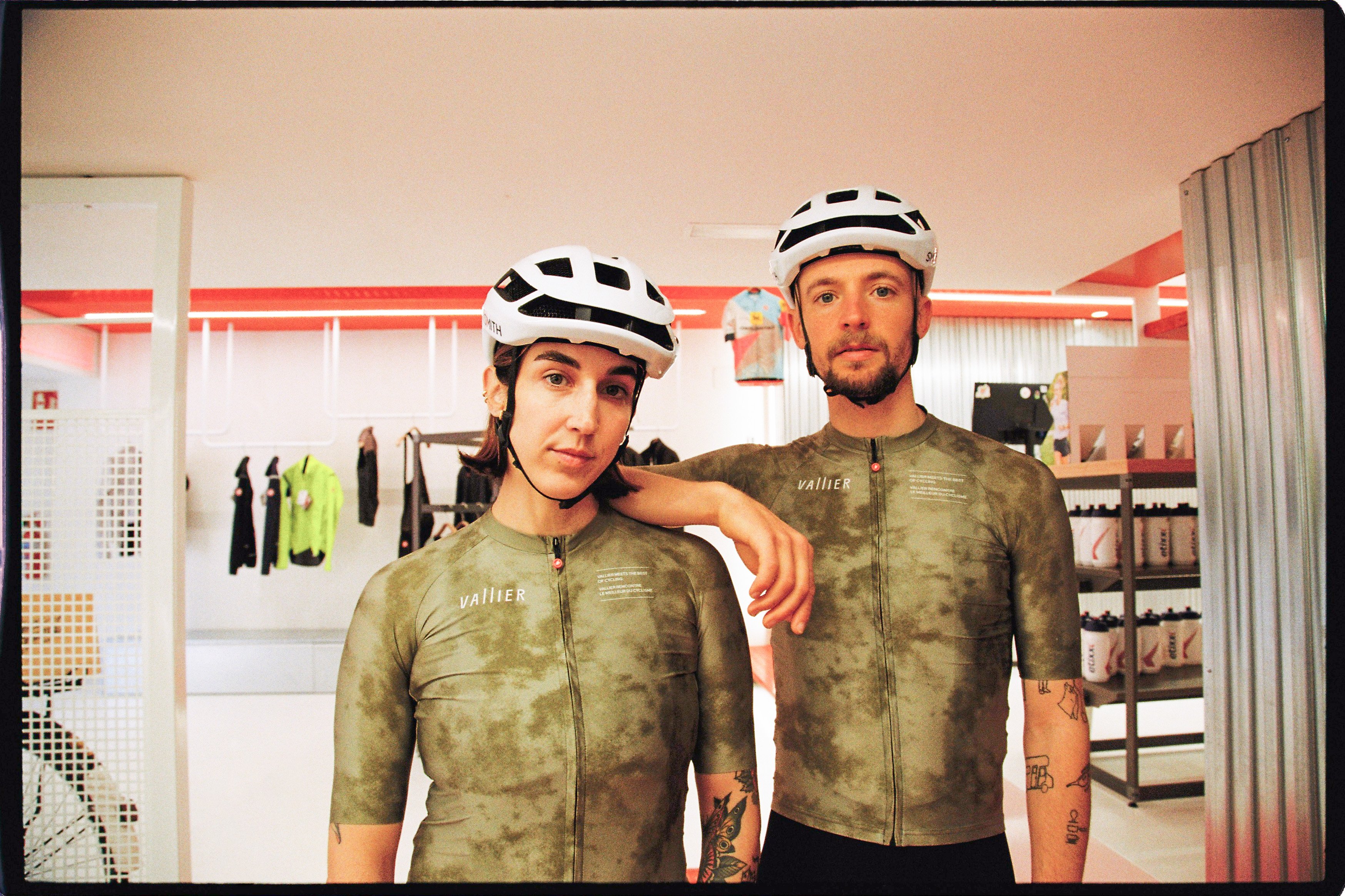
MADE TO LAST
Vallier x Castelli is a collaboration made to last, and to ride from city streets to country roads in total comfort. Its colours are perfectly at home in the café and in the peloton, especially if it's with a few friends. Technologically, no concessions have been made and no detail has been overlooked, which is truly a signature shared by both brands.
Vallier x Castelli jerseys, shorts and socks are available now on altitude-sports.com, and in select Castelli stores.
Vallier x Castelli jerseys, shorts and socks are available now on altitude-sports.com, and in select Castelli stores.
Article: Emma Dixon-Cahn, Copywriter Altitude Sports
Images: @Sergi Mas de Xaxars
Images: @Sergi Mas de Xaxars
Special thanks to Béatrice Perron, Philippe Giguere, Luisa Stavenhagen, Edoardo Lazzarotto, Giovanni Lira, Sergi Mas de Xaxars, Sara Garcia, Nick Cusseneers and Ryan Soe-Jeng Woei
